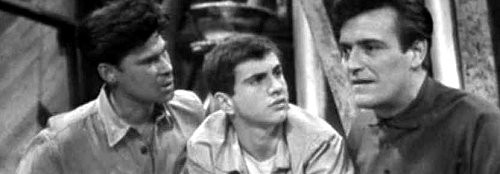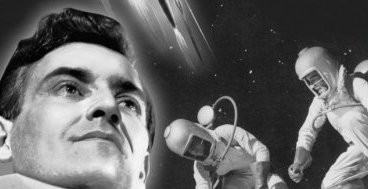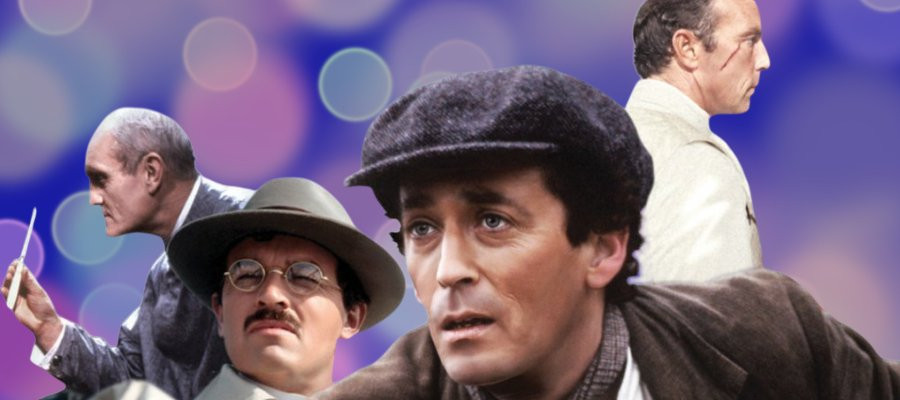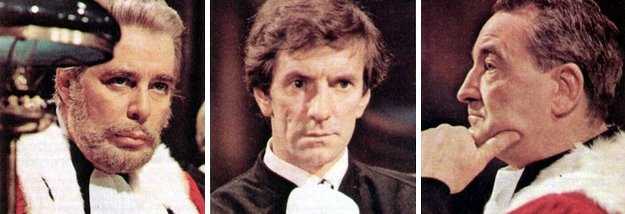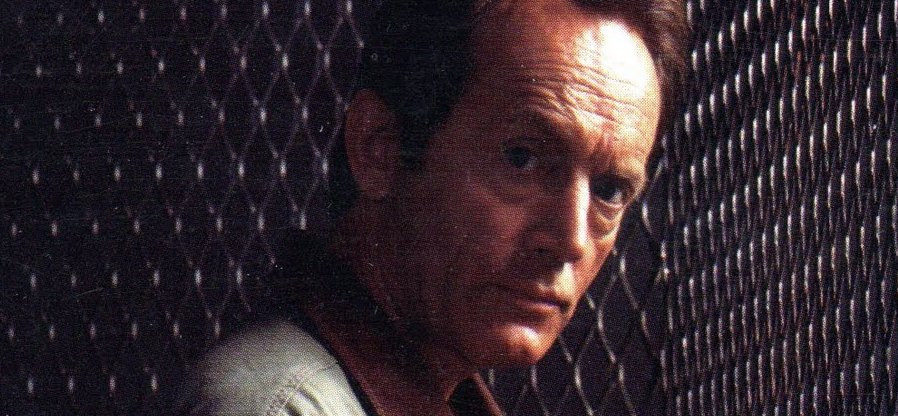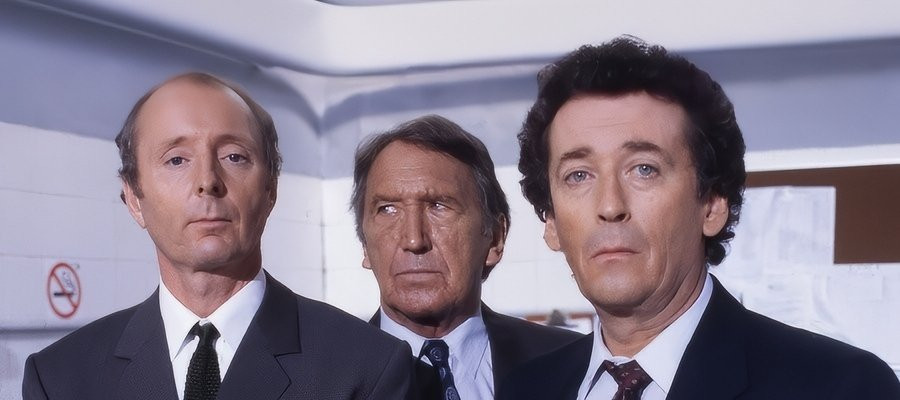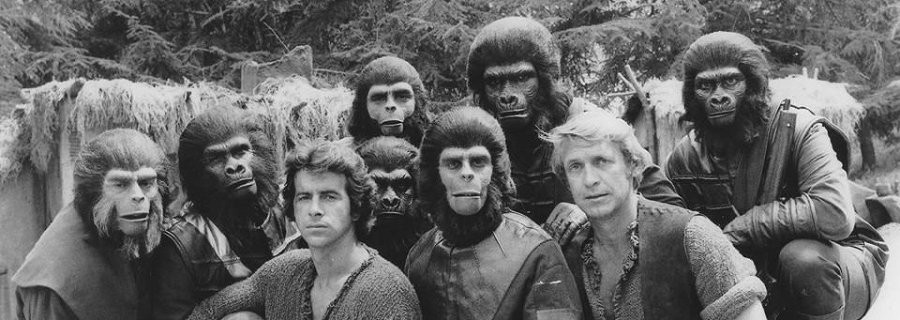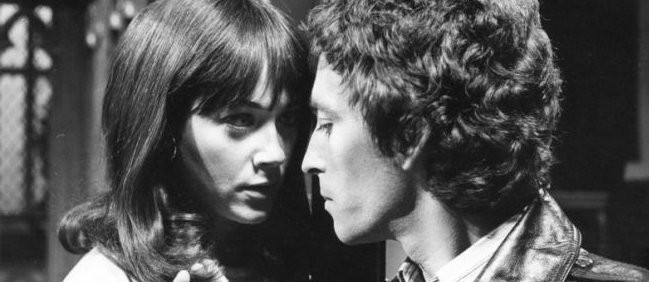
Doomwatch
1970 - United KingdomOn the evening of 9 February 1970 a new drama series premiered on British television screens which almost immediately struck a chord in the consciousness of a viewing public which was slowly awakening to the importance of greater ecological awareness, and the possible dangers of a blind and unquestioning faith in the acceptance of ever more rapid technological advances. That series was the BBC production, Doomwatch, and that ominously simple title was destined to enter the massed consciousness of the media as a foreboding watchword for future scientific and ecological controversy.
Arguably the first true 'green' television drama series, the principal dramatic thrust of the series concept was simple, direct, and most of all timely. The almost runaway advances in every field of science and technology since the aftermath of World War II had initially offered the promise of a bright, near utopian vision of the future, but as the decades passed, that vision increasingly proved to be overly optimistic and almost childishly hollow. 'Doomwatch' -at least in the show's early seasons- met that growing sense of scientific disillusionment head on, questioning the moral and ethical misapplication of technology and the sometimes less than noble motives of those who wielded power of its application.
Dramatically, the Doomwatch concept was embodied by the core characters working for the Department for the Observation and Measurement of Science, a highly specialised government department set up to monitor and, if possible, control major advances in science/technology. The leader of the team was Dr Spencer Quist, (a consistently strong and committed performance from John Paul). Quist was an abrasive but moral and incorruptible scientist who refused to tow the party line, and had little less than open contempt for the numerous vested interests of ambitious politicians and profit obsessed businessmen. The twin mainstays of Quist's small team of brilliant but highly individualist and unconventional field investigators, comprised the duo of the unorthodox Dr John Ridge (Simon Oats), and the young and idealistic Tobias 'Toby' Wren, (the young Robert Powell, taking the first steps towards a distinguished future career).
The series had been devised by the writing partnership of Gerry Davis and Dr Kit Pedler, and had naturally evolved over time out of their private concerns with the inherent dangers posed to humankind's future survival by unchecked scientific progress. The two had been brought together whilst working on Doctor Who (where, in collaboration with Davis, who was then that show's story editor, the duo had created Doctor Who's single greatest rival to the popularity of the mighty Daleks -the chillingly plausible semi-robot race known as the Cybermen).
United in their common interest, Davis and Pedler began building a file on new potentially questionable advances and devastating hazards, slowly compiling whole scrapbooks with examples on pesticides, defoliation, chemical and atomic waste, pollution, genetic experiment and the like. They self labelled the fledgling new series 'sci-fact', as opposed to 'sci-fiction, and prophetically many of the issues the series dealt with did indeed go on to become chillingly realised as genuine headlines over the course of the months and years to come.
Due to a combination of scientific foresight combined with suspenseful well written scripts and excellent ensemble acting, the series quickly gained a huge and enthusiastic following, allowing it the honour of netting in its first season an audience of 12 million viewers, which was the then record for a first run. The show's creators were also unafraid to shock and play with their audience's expectations. A prime example being the audacious decision to kill off the immensely popular Toby Wren character, blown up whilst heroically attempting to defuse a bomb on a south coast pier, a bold move at a time when viewers weren't used, or indeed expected, to seeing their television hero's die, even in a selfless act of bravery.
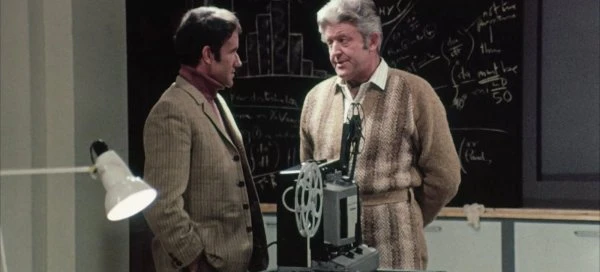
But unfortunately, the impetus, which had fuelled the series early success, began a slow and unstoppable erosion. New characters were introduced only to vanish just as quickly as they had arrived. These included, Dr Fay Chantry, (Jean Trend) originally introduced by the production team with the aim of affording women a higher, more dynamic profile. But with the new and increasing emphasis on the all too predictable area of character conflicts, the series was inexorably forced ever further away from its fresh and exciting original concept and ever deeper into the territory of familiar, more conventional drama.
Dismayed by the unwelcome move away from their long cherished concept, by the onset of the third season Pedler and Davis had withdrawn from active involvement with the series they had created, openly and vocally distancing themselves from the series, especially following season three's highly dubious opening episode, which depicted a now mentally unbalanced Ridge holding the world to ransom with phials of deadly anthrax. Pedler went on record thus: 'I was absolutely horrified. When we started it the clear object of the series was to make serious comment about the dangerous facts of science, which should be drawn to the public. They have made a total travesty of the programme.'
Producer Terence Dudley was just as quick to defend the show, insisting that season three was, indeed, confronting the issues. And to a certain extent that was true, topical subjects and issues such as lead poisoning, the population explosion, pesticides and river pollution, were indeed grist for the season's story mill, but it was too little, too late. The decline proved to be irreversible, and the hoped for forth season never materialised, although a 1972 movie version did. Doomwatch could almost be said to have acted as the unofficial voice for the ecological and scientific concerns of a large proportion of the nation. Bold, innovative, uncompromising and dramatic, at its peak, Doomwatch was serious drama, posing serious questions to its audience in a way that was as thought provoking as it was entertaining.
Seen this show? How do you rate it?
Seen this show? How do you rate it?
Published on December 8th, 2018. Written by Peter Henshuls for Television Heaven.


